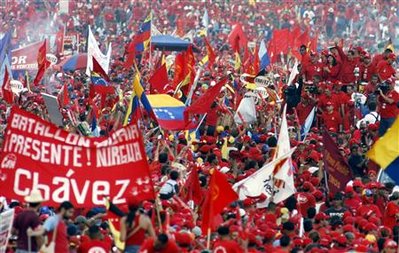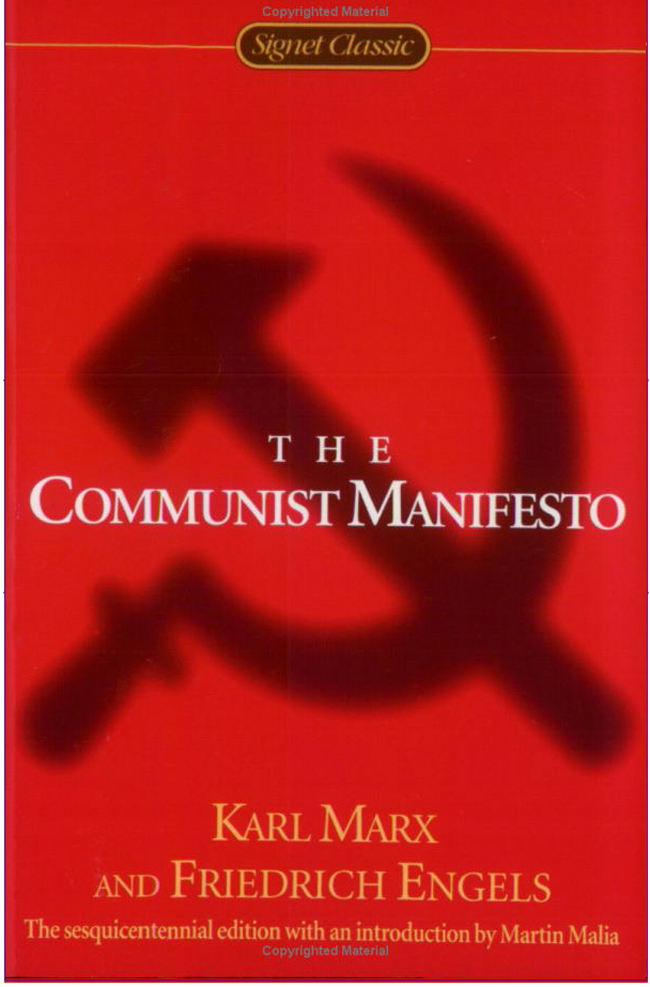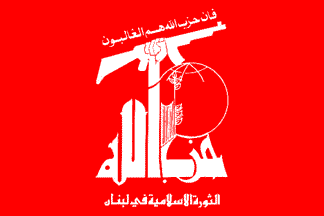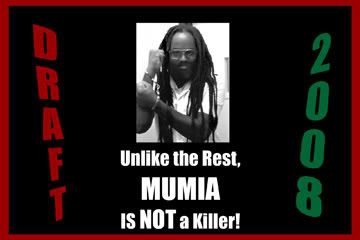Comrade Christian Hainds on Latin America

Comrade Christian Hainds, a union organizer with the Hands Off Venezuela Campaign, recently authored a piece illustrating the connnection between the struggle for Worker & Immigrant Rights on Sam's Plantation, the Bolivarian Revolution in Venezuela, and the workers' struggle in Oaxaca, Mexico. The original piece, printed in full below, can also be read here.
You can also listen to Hainds interviewed on the radio program 'A Public Affair.'
You can also listen to Hainds interviewed on the radio program 'A Public Affair.'
The face and the nature of the American labor movement have changed. The struggle of the immigrant worker is quickly becoming the front line in Labor’s battle against corporate greed.
As proof, we need look no further than the massive marches of immigrant communities which, last spring, functionally shut down entire neighborhoods in major cities like New York, Chicago, Los Angeles and Phoenix. The change was also felt here in our own back yard with the largest demonstration in recent memory on April 10 and another on May 1, International Workers’ Day, where immigrants refused to work and demanded fair treatment.
I’ll say it again. The face of the American labor movement has changed; and we must change with it.
The new influx of immigrant workers into the U.S. labor force brings with it both new challenges and new opportunities. In reality, the primary difficulty lies in accepting that the struggle of Latino(a) workers both here and in Latin America, is the same struggle as that of the American worker. It is this understanding, however, and learning from the victories of our brothers and sisters in countries across Latin America, which offers the American labor movement potentially great rewards.
Workers of the Sanitarios Maracay factory in Venezuela are fighting the same battle as the workers of Goodyear. These issues have no nationality, language or passport. Down-sizing, cuts in pensions, vanishing job security, wage concessions, lack of adequate health care, a public education system that is being gutted at an unimaginable pace; this is the lot of working people internationally.
And workers all over the world are resisting. They are striking in Houston and Sun Prairie and occupying factories in Caracas. And, they built an autonomous, functioning government in Oaxaca, Mexico.
Some of the most telling signs of this new resistance are the outcomes of the presidential elections which were held in multiple Latin American countries throughout 2006. Venezuela, Ecuador, Nicaragua and Bolivia have all elected or re-elected candidates who promote the interests of working peoples. And it was only due to a clear case of electoral fraud that Mexico did not follow suit. In partnership with pro-labor governments in Brazil and Chile, these new and returning administrations offer real hope for working people all over the world.
The message sent by Latin American workers is clear. They have rejected the anti-worker trade policies of NAFTA and CAFTA. They have rejected the poor wages, the lack of worker protections, and the gutting of public education and basic social services which the IMF and World Bank have dictated. Most importantly, they have rejected the idea that global corporations, and the economic system in which they operate, have the right to determine the course of their lives. They are bravely constructing a real alternative to a pro-business, anti-worker world system.
Two specific cases particularly stand out as clear examples of what working people can do when trade unions join forces with the broader working class to affect change.
Chavez in Venezuela: What does it mean?
On December 3, Venezuelan President Hugo Chavez Frias was re-elected to another six year term in office by an overwhelming margin. Venezuelans affirmed their support for continuing what has become known as the Bolivarian Revolution. This social transformation has a specific agenda – an agenda which is being driven by Venezuelan workers themselves.
What is happening in Venezuela, and what has it done for the Venezuelan people?
In short, it has increased the Venezuelan Gross National Product, has decreased poverty, has provided free front-line health care in poor and underserved villages and barrios, has eradicated illiteracy, has provided poor Venezuelan youth with a free public university system, has given workers the right to make decisions about the way in which their factory operates, and has given land to hundreds of thousands of poor Venezuelan farmers which they can cultivate as they see fit.
These actions were not the product of one man, or even the decisions of a government. They were fought for, and achieved by organized Venezuelan workers.
Oaxaca, Mexico: Teachers’ Union Leads the Way
In response to decades of living under a corrupt local government, to dire economic conditions, and a public school system which has continuously failed to meet the needs of Oaxacan children, the Teachers’ Union struck earlier this year.
Their demands? Adequate class sizes, proper supplies for their students, shoes for every pupil, and an end to excessive standardized testing. The Mexican government’s response? Force. Bullets. Assassinations. Illegal incarcerations. Rape. Murder.
The outcry was tremendous. Working with community groups, the Oaxacan Teachers’ Union effectively overthrew the local government, occupied television, radio and communication networks, and is attempting to establish a new government which reflects the will of the people.
The patterns are similar: working people and union members are demanding change, and if they are denied a democratic process, they are taking matters into their own hands.
SCFL’s Presentation of “Social Cinema”
In light of these developments, the South Central Federation of Labor is sponsoring a film series which will introduce and elaborate on various struggles of working people and union members in Latin America. By doing this, we hope to accomplish two things.
First, we hope to create an atmosphere in which members of Organized Labor are introduced to the traditions of our community’s Latino(a) workers and union members. Second, we hope to create a dialogue in which the lessons of our brothers’ and sisters’ struggles can be effectively distilled.
The first movie in the Social Cinema series will be held on Monday, February 19, 5-6:45 p.m., at the Madison Labor Temple, 1602 S. Park St. The film Granitos de Arena (Grains of Sand) will look at the struggle of Oaxacan teachers against the hardships faced by teachers worldwide.
Future movies include Five Factoried (Cinco Fabricas), and The Take, which discuss the plight of Venezuelan and Argentinean workers, respectively.
Each movie will be followed by a short discussion. We hope this will allow us to draw on each others’ experiences, and will work to insert our movement here in Madison into the movement of workers, worldwide. All movies are suitable for a bilingual audience, with both English and Spanish subtitles.
OPEIU Local 39 member Christian Hainds is a staff rep with SEIU District 1199W and works with union members at Meriter Hospital.
Hainds is also a member of the SCFL Education Committee and local coordinator for the group Hands Off Venezuela.







<< Home